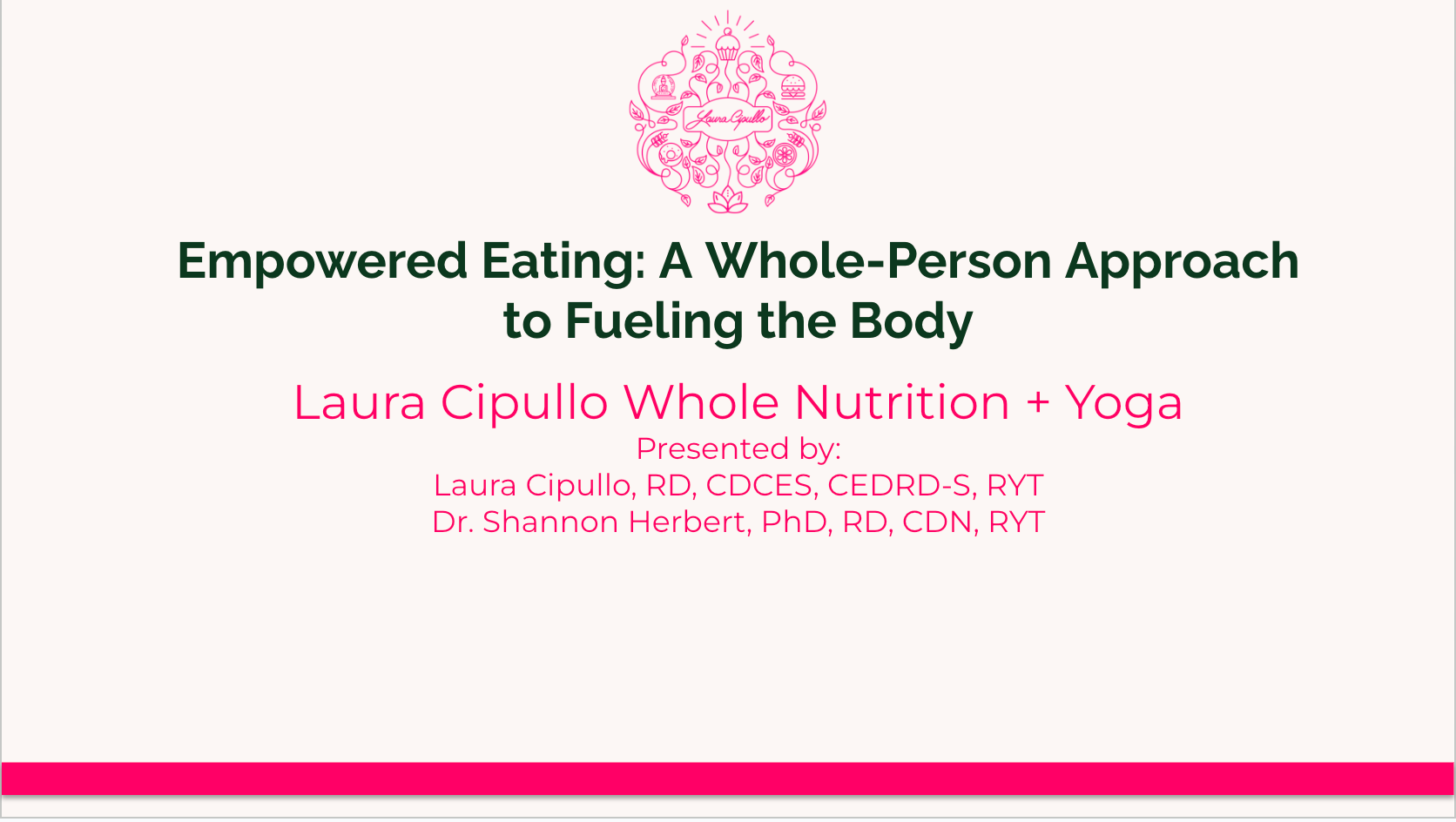Shame doesn’t deserve a space on our plates! Yet, feelings of shame and guilt are commonly reported by clients after experiences of overeating. While distinct emotions, with guilt focusing on judging specific behaviors and shame focusing more globally on judging the self,1 both are often involved in overeating occurrences.
Understand Why You’re Overeating
Overeating, or eating past a point of feeling comfortably satiated, is quite a common experience. At some point in our lives, all of us have eaten past our comfortable point of fullness. Many factors can play a role in overeating, including our emotional state and food restriction. Self-imposed restrictive diets often result in overeating or binge eating episodes.2 When we fail to live up to the unrealistic expectations we set up for ourselves, we can feel guilt and shame.1
Yet, feelings of guilt and shame can also lead to overeating. Shame and guilt have been identified as possible precursors of binge eating and overeating behavior.3 Furthermore, feelings of shame in women have been associated with disordered eating behaviors.4,5
Conversely, self-acceptance is associated with less overeating and binge eating behaviors.5,6 Thus, it is important to prioritize strategies that combat shame associated with our food choices and build self-acceptance.
How to Stop Over Eating
One powerful tool we have to combat shame associated with overeating is compassion, or kindness towards ourselves. When overeating eating occurs, take a moment to pause, and take a deep breath.
Practice the steps outlined below, using compassion to help take the shame out of overeating.
- Recognize what you are feeling. Acknowledge and recognize what emotions you are feeling, be it shame, guilt, sadness, or frustration associated with overeating. Understand that these feelings are common. Taking time to sit with our emotions, even the uncomfortable ones, can make them feel less overwhelming. Compassionately inquire into what emotions or situations may be driving your desire to overeat. Practice self-compassion by addressing these underlying emotions with kindness and understanding.
- Practice Mindfulness. Mindfulness can be a great tool to become aware of your thoughts, feelings, and behaviors around food. Observe the feelings you recognized above without judgment. Mindfulness can also allow you to recognize potential emotional triggers for overeating.
- Challenge negative self-talk. Replace any critical thoughts with compassionate ones. Rather than beating yourself up for overeating, remind yourself that everyone has moments of overeating and it’s okay to be gentle with yourself. Speak to yourself with the same kindness you would speak to a dear friend.
- Normalize the eating experience. Recognize that overeating can happen to anyone, it does not define your worth or character. Normalize the experience by reminding yourself that it is part of being human and that you are not alone in facing these challenges.
- Focus on Nourishment. Shift your focus from guilt to nourishment. View food as a source of nourishment and pleasure rather than a source of shame. When it is time for your next eating occasion, be sure to provide your body with appropriate and balanced nutrients. Have a balanced meal with all three macronutrients, protein, carbohydrates, and fat, or a snack with at least two of the macronutrients. If you find that shame makes it difficult to desire to eat, remind yourself that fueling your body adequately can help with overeating occasions in the future. In line with practicing mindfulness, as outlined above, savor your food experience and appreciate the nourishment it provides to the body.
- Seek Support. Surround yourself with supportive individuals who promote self-compassion and a positive relationship with food. Consider seeking professional help if overeating is causing significant distress or impacting your well-being. The RD team at Laura Cipullo Whole Nutrition + Yoga is here to work through these challenging emotions together!
By applying these compassionate approaches, you can gradually reduce the shame associated with overeating and develop a healthier and more positive relationship with food and yourself.
References
- Conradt M, Dierk JM, Schlumberger P, Rauh E, Hebebrand J, Rief W. Development of the Weight- and Body-Related Shame and Guilt Scale (WEB–SG) in a Nonclinical Sample of Obese Individuals. J Pers Assess. 2007;88(3):317-327. doi:10.1080/00223890701331856
- Mathes WF, Brownley KA, Mo X, Bulik CM. The biology of binge eating. Appetite. 2009;52(3):545-553. doi:10.1016/j.appet.2009.03.005
- Berg KC, Crosby RD, Cao L, et al. Negative affect prior to and following overeating‐only, loss of control eating‐only, and binge eating episodes in obese adults. Int J Eat Disord. 2015;48(6):641-653. doi:10.1002/eat.22401
- Burney J, Irwin HJ. Shame and guilt in women with eating-disorder symptomatology. J Clin Psychol. 2000;56(1):51-61. doi:10.1002/(sici)1097-4679(200001)56:1<51::aid-jclp5>3.0.co;2-w
- Craven MP, Fekete EM. Weight-related shame and guilt, intuitive eating, and binge eating in female college students. Eat Behav. 2019;33:44-48. doi:10.1016/j.eatbeh.2019.03.002
- Webb JB, Forman MJ. Evaluating the indirect effect of self-compassion on binge eating severity through cognitive–affective self-regulatory pathways. Eat Behav. 2013;14(2):224-228. doi:10.1016/j.eatbeh.2012.12.005








